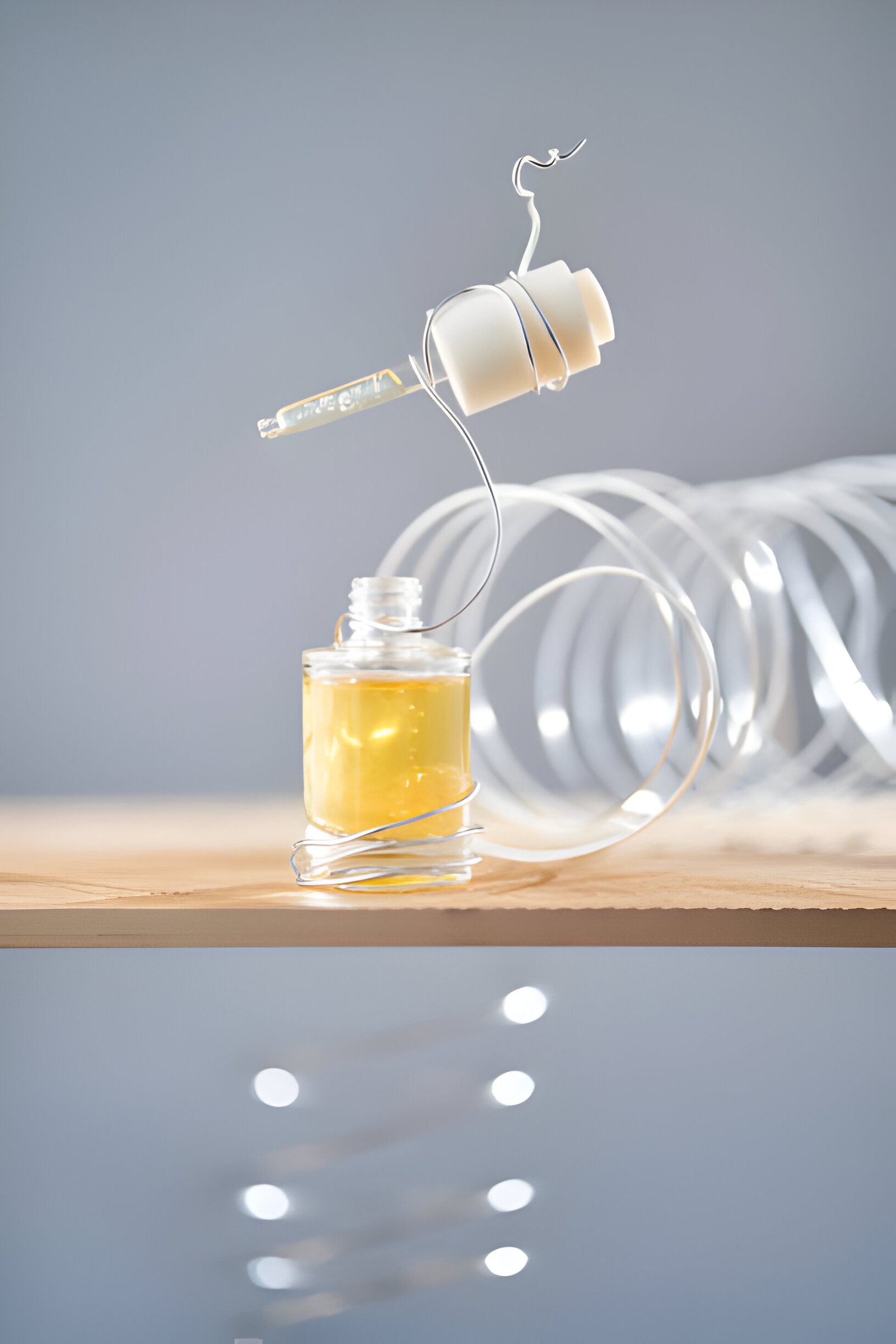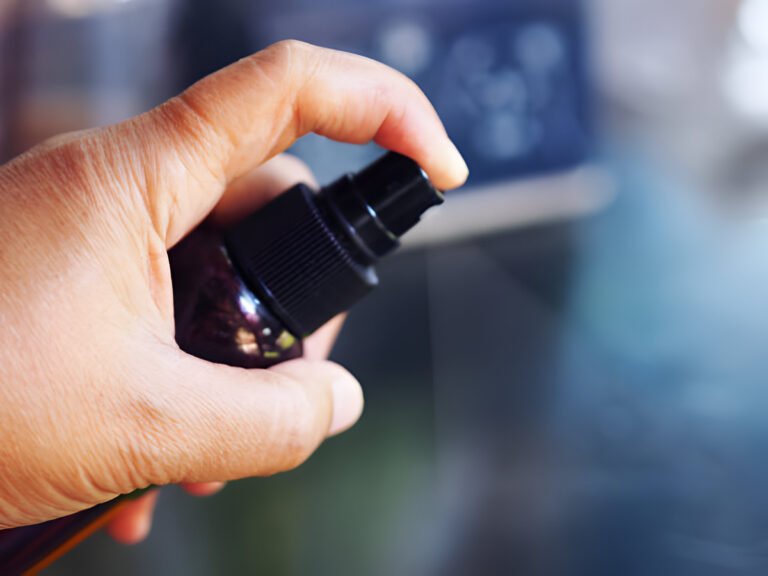Image Credit: Getty image
In recent years, the traditional remedy of using rosemary water for hair has gained popularity among those seeking natural solutions for hair care. Rosemary, with its potent essential oils, offers a host of benefits for the hair and scalp, including stimulating hair follicles, promoting hair growth, and potentially reducing hair loss, including postpartum hair loss. This natural remedy stands out as an attractive option for individuals looking for alternatives to chemical treatments, merging the wisdom of ancient practices with the findings of contemporary research.
This article will explore how to make rosemary water for hair, delving into the science behind its benefits for hair regrowth and maintenance. It will provide readers with a detailed guide on the essential ingredients and tools needed, a step-by-step outline for preparing rosemary water at home, and effective ways to use this remedy to achieve the best results. From understanding the rosemary water benefits for hair to incorporating rosemary oil for an enhanced effect, this guide aims to equip readers with all the information needed to harness the power of rosemary for healthier, stronger hair.
The Science Behind Rosemary Water
Rosemary, scientifically known as Rosmarinus officinalis, is a perennial herb with a rich history in culinary and medicinal uses.
Active Components in Rosemary
Rosemary is enriched with several active compounds such as 1,8-cineole, camphor, rosmarinic acid, carnosic acid, and borneol. These substances are known for their anti-inflammatory, antifungal, antibacterial, and antioxidant properties. Carnosic acid, in particular, is highlighted for its ability to stimulate nerve growth and improve circulation, which are crucial for healthy hair follicles and scalp.
Research on Hair Growth
Several studies have demonstrated the effectiveness of rosemary in promoting hair growth and combating hair loss. For instance, a 2015 study found that rosemary oil could increase hair count as effectively as minoxidil, a common hair growth treatment, over six months.
Historical Uses
Historically, rosemary has been used for its health and beauty benefits for centuries. Notably, in the 14th century, it was a component of Hungary Water, the first alcohol-based perfume in Europe. Rosemary’s use in traditional remedies for promoting hair growth and its inclusion in various hair care formulations highlight its enduring popularity and effectiveness.
DIY Remedies Benefits
In DIY hair care, rosemary is often used for its ease of application and natural benefits. Users can create rosemary water by steeping the leaves in boiling water, which can then be used as a hair rinse to harness its properties. This method is praised for its simplicity and the direct application of rosemary’s beneficial components to the scalp, enhancing hair health without the need for commercial products.
These aspects of rosemary not only illustrate its practical benefits but also explain the scientific basis for its effectiveness in hair care. The combination of historical anecdote and modern research offers a compelling case for rosemary water as a natural remedy for improving hair health.
Essential Ingredients and Tools
To create rosemary water for hair, individuals need only a few basic ingredients and tools. This simplicity makes it an accessible remedy for anyone looking to enhance their hair care routine naturally.
Rosemary Sprigs
Fresh rosemary sprigs are essential for making rosemary water. Typically, about two to five sprigs, each around six inches long, are sufficient. These can be harvested directly from one’s garden or purchased from a local market. If fresh sprigs are not available, dried rosemary can also be used, though fresh is preferred for its potency and aromatic properties.
Water
The quality of water used can affect the infusion. While distilled water is ideal due to its purity and lack of minerals, filtered or tap water is perfectly acceptable, especially if it is boiled. Boiling not only purifies the water but also helps in extracting the essential oils and beneficial compounds from the rosemary sprigs.
Boiling Pot
A medium saucepan or pot is required for boiling the mixture. This should be large enough to comfortably hold the water and rosemary sprigs without overcrowding. A lid is useful to cover the pot during the steeping process, which helps in retaining the essential compounds in the water.
Spray Bottle
Once the rosemary water is prepared and cooled, it needs to be transferred to a spray bottle for easy application. Spray bottles are convenient for applying the rosemary water directly to the scalp and hair. It’s advisable to use a bottle that can produce a fine mist for even distribution. For those looking to store rosemary water for longer periods, using an ice cube tray to freeze the water into cubes can be an effective method to preserve its freshness.
By gathering these simple ingredients and tools, one can easily prepare rosemary water at home, leveraging its benefits for hair health and growth.
Step-by-Step Rosemary Water Preparation
Initial Boiling
- Start by placing a medium saucepan on the stove. Add two cups of water and bring it to a boil.
- Once boiling, add three to five fresh rosemary sprigs to the pot. If using dried rosemary, ensure it’s well-rinsed to remove any debris.
Infusing Rosemary
- Reduce the heat and let the mixture simmer. For a mild infusion, simmer for about 15 to 20 minutes.
Cooling Phase
- After simmering, remove the pot from the heat. Cover it and allow the rosemary to steep in the water as it cools. This steeping process should last for about 30 minutes to an hour, depending on the desired strength of the infusion. The water will gradually take on a yellow-green hue, indicating the release of essential oils from the rosemary.
Storage Instructions
- Strain the rosemary water using a fine mesh sieve to remove all plant material and any residues.
- Transfer the strained rosemary water into a clean spray bottle for easy application. If preferred, the water can also be stored in a mason jar.
- For prolonged freshness, store the rosemary water in the refrigerator. It can be kept for up to two to three weeks. If a longer storage period is necessary, consider freezing the water in an ice cube tray to maintain its beneficial properties for future use.
Effective Ways to Use Rosemary Water
Daily Spray Routine
Individuals can incorporate rosemary water into their daily hair care routine by using it as a leave-on treatment. They should spray rosemary water directly onto the scalp and hair, ensuring thorough coverage. This method is effective for stimulating hair follicles and promoting hair growth. Regular use, ideally daily or as often as possible, maximizes the benefits, including enhancing scalp health and reducing hair loss.
Week-long Application
For those experiencing excessive hair shedding, a more intensive application may be beneficial. Applying rosemary water daily for a week can significantly reduce hair fall. Users should monitor the amount of hair shed during this period to assess the effectiveness of the treatment. Continuous observation will help them determine the optimal frequency and duration of use for their specific needs.
Using with Essential Oils
To further enhance the effectiveness of rosemary water, individuals can add essential oils such as rosemary oil or a carrier oil like coconut or jojoba oil. This combination not only boosts the growth-promoting properties but also moisturizes and nourishes the scalp and hair. Users should mix a few drops of essential oil with rosemary water in a spray bottle and apply it to the scalp and hair, ideally leaving it overnight for maximum absorption.
Precautionary Measures
While rosemary water is generally safe for most people, it is crucial to conduct a patch test before regular use, especially for those with sensitive skin or allergies. Individuals should apply a small amount of rosemary water to a discreet area of the scalp and wait for 24 hours to check for any adverse reactions, such as itching or redness. If irritation occurs, they should discontinue use and consult a healthcare professional. Additionally, those on medication like blood thinners should consult their doctor before using rosemary water, as it may interact with certain medications.
Conclusion
Harnessing the natural power of rosemary for hair care is not only a nod to the wisdom of age-old remedies but also an embrace of modern research highlighting its benefits. From stimulating hair follicles and promoting growth to potentially reducing hair loss, rosemary water offers a simple, effective solution for individuals seeking natural hair care options. The step-by-step guide provided in this article, alongside insights into the scientific and historical foundations of rosemary’s use in hair health, equips readers with the knowledge to incorporate this natural remedy into their hair care regimen.
As we move forward, embracing natural solutions like rosemary water for hair care promises not only to nurture healthier, stronger hair but also to keep us connected with nature’s bounty. With its ease of preparation and application, coupled with the encouraging outcomes from both anecdotal evidence and scientific studies, rosemary water stands out as a beneficial addition to daily hair care routines. As with any natural remedy, the effectiveness can vary from person to person, so incorporating rosemary water into your hair care protocol and observing the results can be a step toward achieving the lush, healthy hair that nature intended.
FAQs
How do I make rosemary water for hair?
To prepare rosemary water for your hair, simply steep rosemary leaves in boiling water and allow it to cool. Once cooled, strain the mixture to remove the leaves, and the rosemary water is ready to use.
Is it safe to use rosemary water on my hair daily?
Yes, you can safely apply rosemary water to your hair every day. Using it regularly as a spray can offer numerous benefits and is comparable to many high-end hair care products.
What is the maximum duration I can leave rosemary water in my hair?
Rosemary water can be left in your hair for extended periods, including all day or overnight, particularly if you are using it as a leave-in treatment.
Does rosemary water help in accelerating hair growth?
Yes, rosemary water can potentially enhance hair growth. It contains natural properties that prevent hormonal changes leading to hair loss, improve blood circulation to the scalp, act as an antioxidant, and reduce scalp inflammation, thereby promoting better scalp health and stronger hair.
























+ There are no comments
Add yours